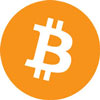bitcoin
 a.k.a. BTC, XBT, bit coin, Bitcoin, cryptocurrency, crypto-currency, digital cash, digital currency, virtual cash, virtual currency
a.k.a. BTC, XBT, bit coin, Bitcoin, cryptocurrency, crypto-currency, digital cash, digital currency, virtual cash, virtual currency Bitcoin is the name for a digital currency based on an open source peer-to-peer Internet protocol.
Bitcoin is not managed like other currencies: it is decentralized and therefore has no central bank or organization. Instead, it relies on an Internet-based, peer-to-peer network. The money supply is automated and given to servers or bitcoin miners that confirm bitcoin transactions as they add them to a decentralized and archived transaction log approximately every 10 minutes.
Bitcoins are exchanged through a computer or smart phone locally or internationally without an intermediate financial institution. Introduced in 2009 by Satoshi Nakamoto, one bitcoin is subdivided into 100 million smaller units called satoshis (defined by eight decimal places).
Bitcoin with capitalization is used when describing the concept of Bitcoin, or the entire network itself. Using bitcoin without capitalization is to describe bitcoins as a unit of account, for example "I sent ten bitcoins today." For a technical description of how the authentication by end-users using digital signature algorithms works, use the Search link below.
Historical perspective: Invented in 2009 as a form of virtual cash used to buy goods and services online anonymously, bitcoin became bigger than anyone expected. Bitcoin was invented by an unknown person or group of people using the name Satoshi Nakamoto and released as open source software. At first glance, it may seem like a terrible idea or even a recipe for disaster. In essence, it is a totally decentralized currency without a central authority, where semi-anonymous parties exchange meaningless tokens. Bitcoin relies largely on trust, something that’s hard to earn and an easy thing to squander. Usually it’s up to governments to create value from nothing, but obviously, it doesn’t always work. Look at the country Cyprus, where a failed banking system caused an entire country to realize that the value of their deposits, the fundamental integrity of their financial selves, was arbitrary all along. Virtual currencies like bitcoin may be just the solution for people who have lost faith in real-world institutions. Bitcoin may look like a hilarious parody on our shaky global economy. But as a currency for the disenfranchised and distrustful, it’s as serious as can be.
As of April 2013, the monetary base of bitcoin was valued at over $2 billion USD. However, the large fluctuations in the dollar value of bitcoin has evoked criticism of bitcoin's economic suitability and legitimacy as a currency. Bitcoin is considered the most widely used alternative currency and is accepted by various merchants and services around the world.
In 2018 the word "bitcoin" was added to Merriam-Webster's unabridged dictionary. And on February 14, 2019, Jamie Dimon, CEO of J.P. Morgan -- even though he said in separate interviews since 2015 that “Bitcoin will not survive.” "Bitcoin is going nowhere." “Bitcoin is a fraud.” -- announced J.P. Morgan's own blockchain-based currency, JPM Coin, making it the first major bank to "issue a coin."


Edit Word